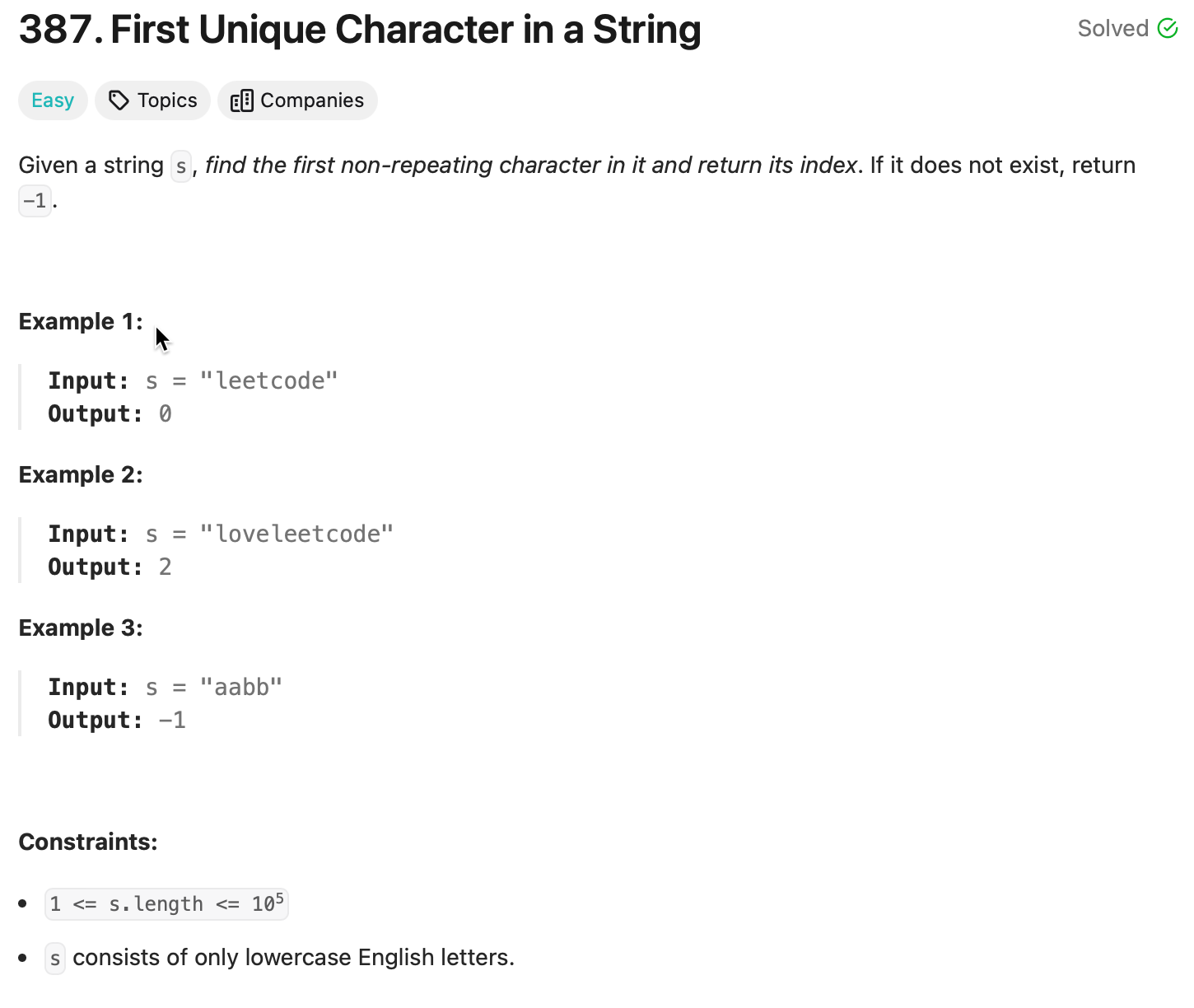Problem of The Day: First Unique Character in a String
Problem Statement

Intuition
To solve this, we can iterate through the string and keep track of the frequency of each character. After that, we can iterate through the characters and find the first one with a frequency of 1.
Approach
I’m using an OrderedDict to keep track of the order of characters in the string while maintaining their frequencies. The key is the character, and the value is a list containing the index of the character’s first occurrence and its frequency.
- Iterate through the string and update the
OrderedDictwith character frequencies. - Iterate through the values of the
OrderedDictand find the first character with a frequency of 1. Return its index. - If no such character is found, return -1.
Complexity
-
Time complexity: O(n) where n is the length of the input string. This is because we iterate through the string once to update the
OrderedDictand once to find the first non-repeating character. -
Space complexity: O(n) where n is the number of unique characters in the input string. In the worst case, all characters are unique, and we store information for each of them in the
OrderedDict.
Code
class Solution:
def firstUniqChar(self, s: str) -> int:
hash_map = OrderedDict()
for i, c in enumerate(s):
if c not in hash_map:
hash_map[c] = [i, 0]
hash_map[c][1] += 1
for i, count in hash_map.values():
if count == 1:
return i
return -1
Editorial Solution
class Solution:
def firstUniqChar(self, s: str) -> int:
"""
:type s: str
:rtype: int
"""
# build hash map: character and how often it appears
count = collections.Counter(s)
# find the index
for idx, ch in enumerate(s):
if count[ch] == 1:
return idx
return -1